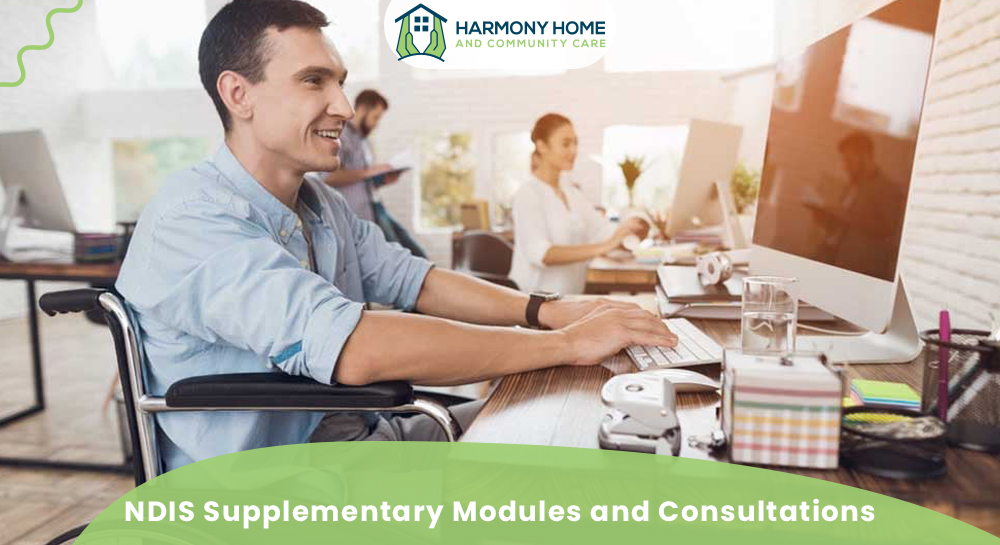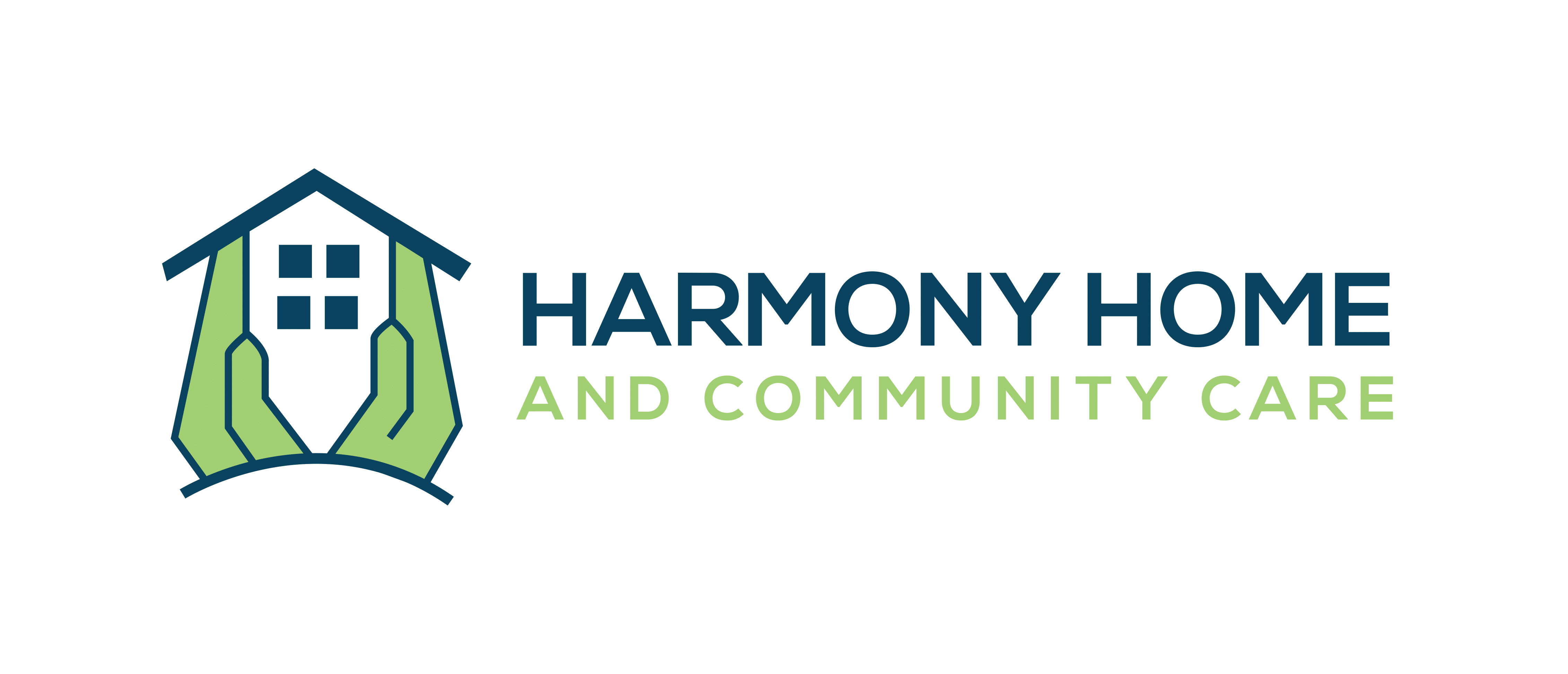Harmony Homes
September 27, 2023
NDIS Supplementary Modules and Consultations

NDIS Supplementary Modules and Consultations
The NDIS Supplementary Modules and Consultations program is a new way for participants in the NDIS, who have varying levels of support needs, to access support services. This program enables people with disabilities, carers and family members to gain training and advice on making further plans for their future.
What are NDIS Supplementary Modules and Consultations?
Supplementary Modules and Consultations (SMCs) are additional services that can be purchased on top of your NDIS plan. They’re not mandatory but may be useful for people who need extra help with their disability.
They can include things like:
- A service to help you find a job or look for work opportunities in your local area
- A personal assistant to help with tasks around the house and assist with everyday life activities such as cooking and cleaning
NDIS Consultations
The NDIS consultation process is an important part of the planning process. It’s where you can get face-to-face advice and support from a disability service provider, who will help you to develop your plan.
The NDIS has set out some key considerations that need to be considered in developing your plan:
- The type of support you want to receive (for example, personal care)
- How much money do you need for this support (This will depend on your circumstances)
- How often and when these services should be provided

Recent Posts
Categories
NDIS Modules
The NDIS is a shared responsibility between the Australian Government and participants. Participants have a choice of how best to meet their goals for independence, dignity and participation in everyday life.
There are four types of NDIS Module:
- Personal Care – helps participants with personal care needs such as getting dressed or bathing. It also includes support for family members who may be providing these services on behalf of the participant;
- Equipment – helps participants with equipment needs such as wheelchairs, walking sticks or hearing aids;
- Training & Employment – provides training opportunities for people with disabilities including job coaching services for those who want employment assistance through Workplace Participation Programs (WPPs) or other supported employment options;
- Community Participation – helps eligible people participate more fully in their communities by assisting with activities like socializing at community events or accessing mainstream services such as libraries, shops etc.
Kinds of modules in the NDIS Supplementary Modules and Consultation program
There are two kinds of modules in the NDIS Supplementary Modules and Consultation program.
- The first kind is called “supplementary”, which means that it can be used in conjunction with one or more main modules. For example, let’s say you have a client who needs help with their mobility but also requires additional support around meal planning and preparation. In this case, you could choose to use one of our supplementary modules as well as one or more main modules (such as Meal Planning) to meet all of your client’s needs. These supplementary modules can also be used alone if needed for specific areas such as communication strategies or self-care skills development.
- The second kind is called “consultations” because they focus on providing information about an aspect of care without providing direct support services (for example, how best to manage finances).
Personal Planning Modules:
These modules will be available from 1 July 2019. This is the first stage of the program which is providing support for people with eligible mental health conditions who have not received a supported accommodation benefit or any other government or community-funded support service since 1 July 2018.
These modules are intended to assist you in identifying your needs, goals and aspirations. They should help you understand what supports are available to you under NDIS, including how to access these supports through your Planner/Adviser (or another NDIS participant).
The Community Employment Services (CES) Modules will be available from 1 July 2020 or earlier if required by an individual. The Agency is working with employers across Tasmania to improve employment opportunities for people with disability and their families. This new program will allow people who meet the eligibility criteria to access flexible, individualized support from employers in their local community; this includes assistance with transport arrangements and other supports required by each person’s individual needs.
Personalized Learning for Service Excellence
These modules are designed to provide internal staff with customized training for the services they provide. The modules cover topics such as eligibility, planning and assessment, funding options and support coordination.
The ese modules are free of charge and can be accessed from any device with internet access.
The modules are designed to be interactive and user-friendly, with a visually appealing interface that makes them easy to navigate. They also come with embedded videos, links to external resources and the ability to take notes as you learn.
A Closer Look at Eligibility, Plan Management, ECEI, and Support Coordination
These sessions are offered to assist providers with understanding and navigating through the NDIS. They cover topics such as Eligibility, Plan Management, ECEI (Early Childhood Education and Care), Support Coordination and Information Technology.
Multi-Organization Access to Supplementary Modules
When you book a supplementary module it will be open to other organizations to join. This means that if you have an NDIS plan and want to learn more about how we can help, or if your organization has an NDIS plan and would like to learn more about our services, then please contact us today. We’d love to hear from you, so please don’t hesitate to get in touch.
Consultations and Workshops
- The NDIS Supplementary Modules are a set of options that participants can choose to receive additional funding for specific supports.
- These modules are available to all participants, regardless of their disability or need. They include:
- Speech Pathology Services (including audiology)
- Occupational Therapy Services (including physiotherapy)
- Psychology Services
- A consultation is an opportunity for you and your family/carers, support people and/or providers of services under the NDIS to talk about what you want from your plan, which helps us understand how we can best meet your needs. We will offer consultations with every participant at least once during the lifetime of their plan.
Supplementary Module – Supporting People
The Supporting People module is one of the four main NDIS modules and it includes a range of supports to help people with disabilities to live independently, participate in their communities and make decisions about their lives.
The NDIS has been designed as a flexible funding model so that people can access the services they need as quickly as possible. There are two types of supporting people services:
- Services provided by the National Disability Insurance Agency (NDIA) – these include things like assessment, planning and coordination support;
- Services provided by approved providers – these include personal assistants, respite care or equipment such as wheelchairs or hearing aids.
Supplementary Module – Buying Services
The NDIS can provide funding for the purchase of goods and services that are not part of your plan. If you need such a service, you will need to apply for it through an NDIS Supplementary Module.
To do this, you need to meet with your provider and discuss what kind of support would best suit your needs. This might include things like:
- A carer who comes into the home each day to help with personal care tasks (dressing, bathing) or personal organization
- A driver’s license assessment
If the NDIS thinks that these services are appropriate for you they will approve so that they can be purchased by your plan provider directly from providers such as driving schools or occupational therapists (OTs).
Supplementary consultation – NDIS Plus Circular 8/2019 (Consultation closed)
The NDIS Plus Supplementary Consultation is now closed.
The NDIS Plus Supplementary Modules are available to people who have an eligible plan and have been approved for the NDIS Plus Scheme. These modules provide additional services above and beyond those that are currently provided by your Plan Manager under your current plan.
The purpose of this consultation was to seek feedback from people with disabilities about how we can improve our processes for managing requests for supplementary module approvals, including whether any barriers prevent people from accessing these services or if there is anything else we could do as part of our decision-making process to ensure fair access across all plans at all times.
NDIS Plus Website: Your Guide to Future Planning
The NDIS Plus website is an online resource that aims to help you understand what you can do to plan for the future. It provides information about your planning choices and options, including how you can make arrangements for your care and support if you need it.
The website also has a section on financial planning which includes information about how you might be able to prepare for the cost of living with a disability by saving money now or in the future, as well as tips on how to manage expenses such as utility bills or phone contracts when living with a disability becomes more expensive than it was before agreeing the NDIS (National Disability Insurance Scheme).
Additional Support for NDIS Participants
The NDIS Supplementary Modules and Consultations are intended to provide additional services to people who are currently participants in the NDIS. These supplementary modules aim to assist participants with specific needs, such as those who require support with medical treatment or social interaction.
This is not an exhaustive list of all available supplementary modules; it is simply intended as a guide for individuals looking for further information about what is available and how they can access it.
Conclusion
The NDIS is a very complex system, and you must understand what it means for your family. We hope this guide has helped clarify some of the confusion around supplementary modules and consultations.


